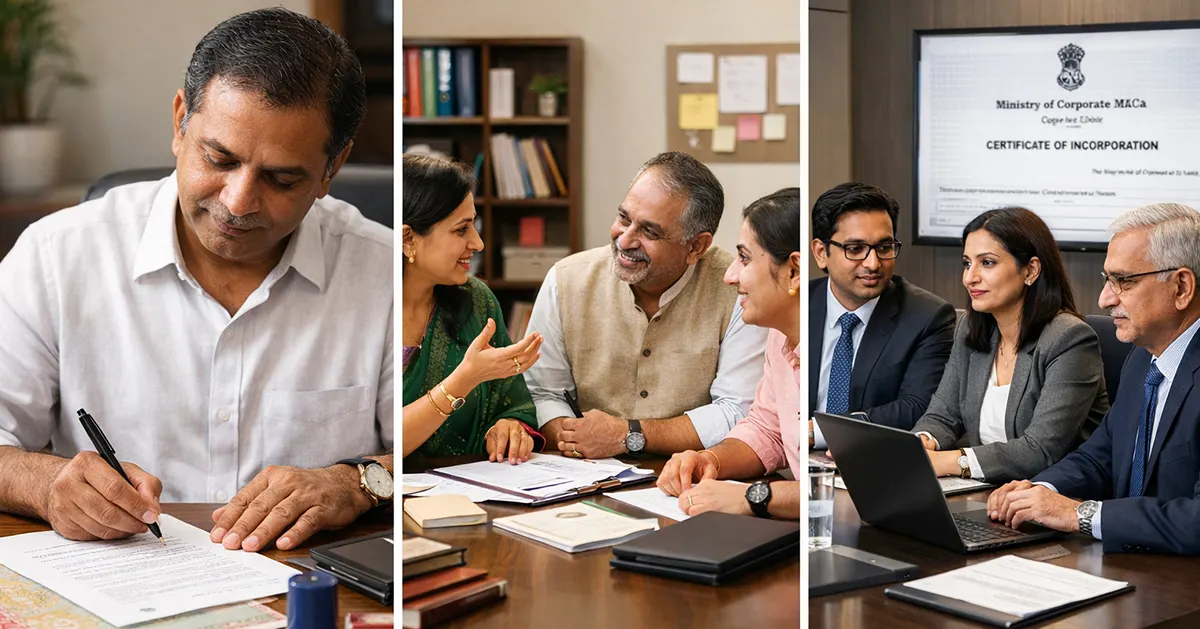
Non-Governmental Organizations (NGOs) play a vital role in addressing the social, economic, and environmental issues that affect India’s large and diverse population. These non-profit organizations work tirelessly to provide solutions to a wide array of problems, from education and healthcare to poverty alleviation and environmental sustainability. As NGOs continue to gain momentum in India, it’s essential to understand the different types of NGOs in India and the unique roles they play in society.
In this article, we will explore the different types of NGOs in India, their structures, the causes they address, and how they contribute to creating positive social impact. Additionally, if you’re planning to establish your own non-profit organization, we’ll discuss how RegisterKaro can help you with the NGO registration process, ensuring your organization complies with all legal requirements.
What Are the Different Types of NGOs in India?
India is home to a vast number of NGOs, each working towards different social, environmental, or economic causes. The types of NGOs in India can be broadly categorized based on their functions, structure, and area of focus. These non-profit organizations vary in terms of scale, operations, and their relationship with the government and local communities.
Here’s a breakdown of the major types of NGOs in India:
- Charitable Organizations:
- Focus on providing immediate support to marginalized communities in need.
- Work in sectors like healthcare, education, disaster relief, and poverty alleviation.
- Provide services such as donations, food distribution, medical care, and educational resources.
- Operate with the help of volunteers and donors.
- Aim to make a direct impact on the lives of individuals through charitable actions.
- Examples include NGOs working on hunger relief, healthcare, and social services.
- Advocacy and Human Rights NGOs:
- Aim to raise awareness and advocate for human rights issues and policy changes.
- Focus on promoting civil liberties, environmental protection, and the protection of minority rights.
- Often work on issues such as gender equality, child rights, and LGBTQ+ rights.
- Engage in lobbying efforts and offer legal support for those affected by unjust laws.
- Some NGOs focus on combating human trafficking and educating citizens about their legal rights.
- Play a key role in pushing for systemic change in policies and laws that affect marginalized groups.
- Development NGOs:
- Focus on long-term social development and improving the quality of life in rural and urban areas.
- Work on issues like access to clean water, sanitation, rural development, and employment generation.
- Emphasize empowerment by providing skills and resources to enable communities to improve their lives sustainably.
- Collaborate with the government and other organizations to implement development programs and initiatives.
- Ensure that social improvements are sustainable and community-driven, aiming for lasting change.
- Environmental NGOs:
- Raise awareness about ecological issues such as pollution, deforestation, and wildlife protection.
- Promote sustainability through education, advocacy, and hands-on projects.
- Focus on protecting endangered species, reducing carbon emissions, and advocating for renewable energy.
- Push for policy changes that ensure long-term environmental protection and sustainability.
- Often work with local communities, businesses, and governments to promote eco-friendly practices.
- Aim to preserve natural resources for future generations while promoting sustainable development.
- Educational NGOs:
- Work to improve access to education, especially in marginalized communities, by eliminating barriers like poverty and lack of infrastructure.
- Provide services such as free schools, adult literacy programs, and vocational training centers.
- Address the educational needs of underprivileged children and adults, ensuring they have opportunities to learn and grow.
- With the rise of digital education, some NGOs focus on bridging the digital divide by offering online education platforms.
- Strive to create educational opportunities that empower individuals to improve their lives and contribute to their communities.
- Health NGOs:
- Focus on improving public health by providing healthcare services to underprivileged communities.
- Organize free medical camps, mental health support programs, immunization drives, and provide medical supplies in disaster-affected areas.
- Work on combating diseases like malaria, tuberculosis, and HIV/AIDS, particularly in rural areas with limited healthcare access.
- Raise awareness about important health issues and promote healthy practices in underserved regions.
- Ensure access to essential healthcare services for vulnerable populations, aiming to improve overall public health outcomes.

How NGOs Contribute to Social Impact in India
NGOs in India play a crucial role in creating social impact by addressing gaps in government services and filling the need for sustainable development. They are directly involved in uplifting communities, improving livelihoods, and empowering vulnerable populations. Some ways NGOs contribute to social impact include:
- Capacity Building: NGOs provide training and capacity-building programs that empower individuals to improve their skills and earn livelihoods, particularly in rural areas.
- Policy Advocacy: Through advocacy, NGOs help shape public policy to better serve the needs of marginalized groups. They play a key role in pushing for legal reforms, like the Right to Education or the Right to Information Act.
- Community Engagement: NGOs involve communities in the decision-making process, ensuring that the solutions they provide are tailored to the community’s unique challenges and needs.
- Access to Resources: By mobilizing resources, NGOs bring services such as healthcare, education, and clean water to underserved areas, often providing these services at no or low cost.
How RegisterKaro Can Help You Start Your NGO
If you are passionate about charitable work and want to start your own NGO in India, RegisterKaro is here to help. Registering an NGO can be a complex process, involving the preparation of legal documents, submission to the appropriate authorities, and compliance with Indian laws.
RegisterKaro simplifies the NGO registration process, ensuring that you meet all legal requirements and can focus on the important work your organization is doing. Our team will help with everything from drafting your NGO’s constitution and bylaws to ensuring compliance with the government’s rules and regulations.
Need help registering your NGO? Contact RegisterKaro today and let us guide you through the process of establishing a successful non-profit organization.
Frequently Asked Questions
Registering an NGO requires creating a Memorandum of Association (MOA), Articles of Association (AOA), and submitting them to the government. You will also need to provide identity and address proofs of the founders. Contact RegisterKaro for expert help in understanding the full legal requirements for NGO registration.




